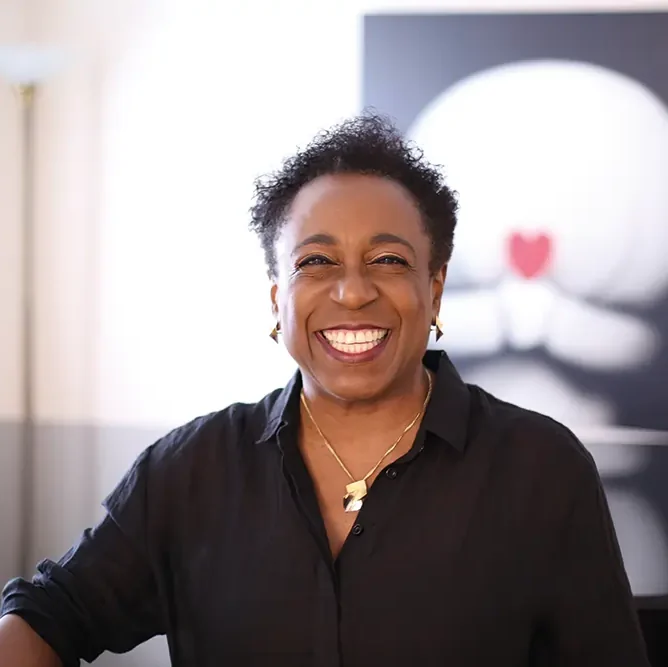The shadows we cast as leaders

John E. Kaye
- Published
- Executive Leadership, Home

With seniority comes the responsibility to influence your organisation in a positive way, and create a lasting, progressive legacy, says leadership coach Yetunde Hofmann
As senior leaders, what we whisper can resound across our company like a foghorn. I remember a CEO once sharing with me details of a conversation he’d had with a team member. He had shared his thoughts on whether to instruct a travel ban across the organisation – a global business. It was simply an idea, not a considered plan. But within a week, the entire organisation had implemented global travel bans as an edict from the top. It took some undoing.
Understanding the shadows we cast and how our influence can affect our organisation is critical. As CEOs, you can single-handedly influence culture with a nod, and your decisions and actions can reverberate through your employees, customers, and communities you serve.
The impact of trickledown leadership
When companies talk about their cultures – whether it’s good or bad – we often look at the top of the business to see where the decisions are coming from. So, if the CEO is working all hours and purporting a bad work/life culture, it’s unsurprising that this is reflected in the various layers of management and employee structures. Water only trickles downwards and decisions you make at a senior level can ripple far wider than first imagined.
To prevent our influence from overshadowing our team’s progress and success, leaders must look in the mirror and reflect on what they are doing to create a negative and positive influence within their organisation. Everything we do – from what we publicly recognise to what we don’t say, and everything in between – is watched and interpreted. Saying thank you to someone can lift their status amongst their peers, whilst not remembering a name can diminish another’s.
So, what can senior executives do to ensure their shadow does not overpower or prevent positive progress? Here’s four things to try in your management style.
Don’t underestimate the power of your voice
Inclusion and inclusive practices start from the top, so even asking a simple question, such as who should be in the room, can create a most needed and effective change when it comes to something as fundamental to the business as shaping strategic discussions. Using your voice intentionally to champion a cause will also improve the drive behind and ability to achieve its aims.
How certain functions or causes are viewed and supported can also be influenced by the way the C-suite behaves. Other managers will take their cues from you, so if you share a negative impression about a department’s leaders or employees then the budgets allocated, resources shared, and words spoken about them can change.
Therefore, it’s important that you reflect on the words you use and the way you behave in meetings. Use inclusive language and be careful with the nature and types of “jokes” and criticisms you share in this environment. It’s likely these will be repeated by others in your organisation, which could be damaging for the reputation and psychological safety of those being discussed.

Be consistent in your actions
A CEO who says they believe in the power of collaboration and then works in silos and on a 1-2-1 basis with executive directors is not going to win many supporters. Your employees expect you to lead them authentically so you must ensure that your actions align with your intentions. If you endorse an important initiative or agenda, such as a new ESG or inclusion project, it’s important to provide regular updates and align your top team behind it. That way, your employees know that you are truly invested in the path ahead and will follow your lead.
Likewise, you must be willing to make tough decisions and speak out against harmful behaviours and language, even if it risks making you unpopular. People decisions are some of the most needed, yet they are often the most delayed made by CEOs in the world today. You must not be swayed by how talented or well-liked an individual is; if their conduct goes against your organisation’s values then you must act accordingly. Having a clear purpose as a leader, board, and company makes this process much easier, so do the work to establish this alignment by establishing what is expected of you from your stakeholders and vice-versa, and how you can work together to achieve your goals.
Build your team around your purpose
Selecting your team members is also critical for aligning your organisation’s purpose with your practice. The more senior the individual leader, the more important it becomes to select and onboard them in terms of shared values and behaviours. Their ability to do the job technically should, at this point, be a given. Choose people who truly understand and are passionate about what you are trying to achieve. A leader without any followers is just an individual, so finding someone who can inspire employees is crucial if you want your shadow to have a positive impact on your business.
Like everyone, CEOs need trusted confidantes to turn to for advice and support. Finding someone who can play the role of your “fool” is not just part of a Shakespearean chorus, but a key part of your business cabinet. This is the person who will speak the truth, challenge, and hold the mirror up to you. They could be internal or external to your company, but having someone in your corner who will keep you accountable and acts as a sounding board is invaluable for ensuring you deliver on your goals. It’s also a great benefit if they have gone through similar experiences and can act as a coach and mentor in tough situations to provide advice to you on your decision-making.
Shine the spotlight on yourself
Being a role model provides you with a far wider remit than simply your direct reports. Therefore, it is critical for leaders to understand how they are perceived by their network. Test how you come across through the use and analysis of 360-degree tools and conduct regular town hall meetings to open discussions with your people up, down and across the business. This way you can remain in touch and instep with your business, and be on the front foot of resolving any issues affecting your people that may not have come across your desk.
Shining the spotlight on yourself also involves accepting who you are – warts and all. Only through love can you truly recognise and embrace your talents, strengths, weaknesses, and experience. Love-based leadership is the key to acting with purpose and can greatly transform your understanding of how your position influences others.
As business leaders our shadows will leave a lasting mark, felt by our organisations long after we move on from our roles. Creating a positive legacy relies on us walking in awareness of our roles as an instrument of change and the change ourselves. We have the power to make a positive difference – but only if we use it wisely.


About the author
Yetunde Hofmann is a Portfolio Non-Executive Director, a Board level leadership coach and mentor, global change and inclusion advisor, author of ‘Beyond Engagement’, and Founder of the Solaris Executive Leadership Development Academy.
RECENT ARTICLES
-
 Your roadmap to better management
Your roadmap to better management -
 Navigating the complexities of cross-cultural management
Navigating the complexities of cross-cultural management -
 Time to hire an A-team C-suite?
Time to hire an A-team C-suite? -
 Why strategic thinking is a team game
Why strategic thinking is a team game -
 Prioritising the golden thread
Prioritising the golden thread -
 The shadows we cast as leaders
The shadows we cast as leaders -
 Are referrals a risky business?
Are referrals a risky business? -
 Value your team as much as your customers
Value your team as much as your customers -
 Deliver with aplomb
Deliver with aplomb -
 Helping the business world’s squeezed middle
Helping the business world’s squeezed middle -
 Can stress boost organisational performance?
Can stress boost organisational performance? -
 A roadmap to marketing in times of turmoil
A roadmap to marketing in times of turmoil













